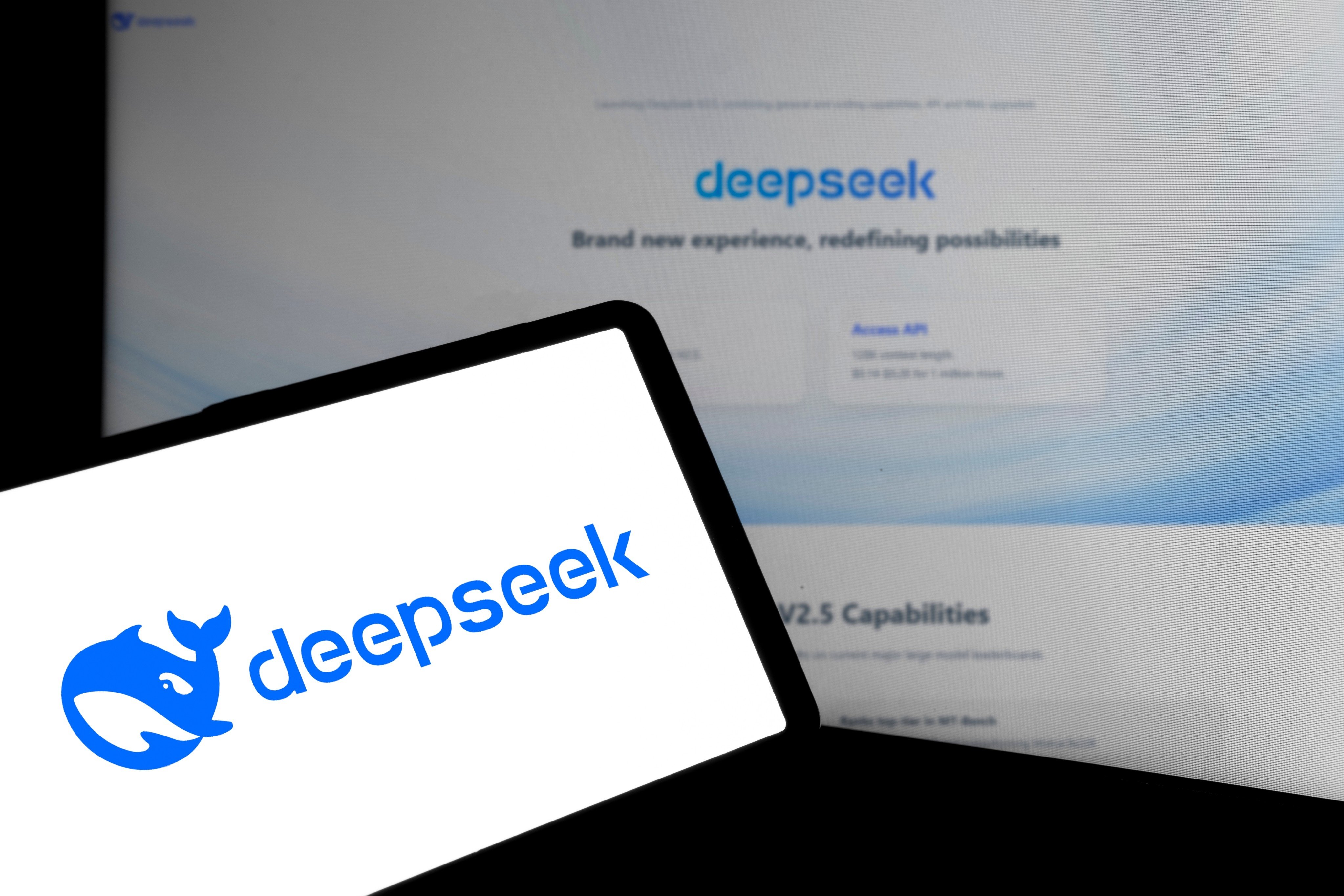
Expert System (AI) is revolutionizing education while making discovering more accessible but also sparking arguments on its impact.

While students hail AI tools like ChatGPT for enhancing their learning experience, speakers are raising issues about the growing reliance on AI, which they argue fosters laziness and weakens academic integrity, particularly with lots of students unable to defend their projects or provided works.

Prof. Isaac Nwaogwugwu, a speaker at the University of Lagos, in an interview with Nairametrics, expressed aggravation over the growing dependence on AI-generated reactions amongst trainees recounting a current experience he had.
RelatedStories
Avoid sharing individual info that can recognize you with AI tools- Expert cautions
Chinese AI app DeepSeek sparks worldwide tech selloff, difficulties U.S. AI dominance
"I offered a task to my MBA trainees, and out of over 100 students, about 40% submitted the exact very same answers. These trainees did not even know each other, but they all utilized the exact same AI tool to create their reactions," he stated.
He noted that this pattern is prevalent amongst both undergraduate and postgraduate trainees however is especially worrying in part-time and range learning programs.
"AI is a major challenge when it concerns projects. Many trainees no longer think critically-they just go online, produce answers, and send," he added.
Surprisingly, some speakers are also implicated of over-relying on AI, setting a cycle where both teachers and students turn to AI for benefit rather than intellectual rigor.
This dispute raises important concerns about the role of AI in scholastic integrity and trainee development.
According to a UNESCO report, bio.rogstecnologia.com.br while ChatGPT reached 100 million month-to-month active users in January 2023, just one nation had actually launched guidelines on generative AI since July 2023.
As of December 2024, ChatGPT had more than 300 million individuals using the AI chatbot weekly and 1 billion messages sent every day worldwide.
Decline of scholastic rigor
University lecturers are significantly worried about trainees sending AI-generated projects without truly comprehending the material.
Dr. Felix Echekoba, a lecturer at Nnamdi Azikiwe University, revealed his concerns to Nairametrics about students progressively counting on ChatGPT, only to deal with responding to fundamental questions when tested.
"Many trainees copy from ChatGPT and send refined assignments, however when asked fundamental questions, they go blank. It's frustrating because education has to do with finding out, not simply passing courses," he said.
- Prof. Nwaogwugwu explained that the increasing variety of first-class graduates can not be completely attributed to AI but confessed that even high-performing trainees use these tools.
"A first-class student is a top-notch trainee, AI or not, however that doesn't imply they do not cheat. The advantages of AI might be peripheral, however it is making trainees dependent and less analytical," he stated.
- Another speaker, Dr. Ereke, from Ebonyi State University, raised a different issue that some speakers themselves are guilty of the very same practice.
"It's not simply trainees utilizing AI lazily. Some lecturers, out of their own laziness, create lesson notes, course details, marking plans, and even test questions with AI without examining them. Students in turn use AI to generate responses. It's a cycle of laziness and it is eliminating genuine learning," he lamented.
Students' viewpoints on usage
Students, on the other hand, state AI has improved their knowing experience by making scholastic products more easy to understand and available.
- Eniola Arowosafe, a 300-level Business Administration student at Unilag, shared how AI has actually significantly helped her learning by breaking down complex terms and providing summaries of prolonged texts.
"AI helped me comprehend things more easily, especially when handling intricate topics," she discussed.
However, she recalled an instance when she utilized AI to submit her job, just for her lecturer to instantly recognize that it was created by ChatGPT and reject it. Eniola noted that it was a good-bad impact.
- Bryan Okwuba, who just recently finished with a superior degree in Pharmacy Technology from the University of Lagos, firmly believes that his academic success wasn't due to any AI tool. He attributes his impressive grades to actively engaging by asking concerns and focusing on locations that lecturers stress in class, as they are typically shown in exam questions.
"It's everything about being present, focusing, and tapping into the wealth of knowledge shared by my coworkers," he stated,
- Tunde Awoshita, a final-year marketing student at UNIZIK, admits to periodically copying straight from ChatGPT when facing multiple deadlines.
"To be truthful, there are times I copy straight from ChatGPT when I have multiple deadlines, and I understand I'm guilty of that, the majority of times the speakers don't get to review them, but AI has also helped me learn faster."
Balancing AI's role in education
Experts think the solution depends on AI literacy; mentor trainees and wiki.whenparked.com lecturers how to utilize AI as a learning aid rather than a faster way.
- Minister of Education, Dr. Tunji Alausa, highlighted the integration of AI into Nigeria's education system, stressing the importance of a well balanced approach that keeps human participation while utilizing AI to improve finding out results.
"As we browse the quickly progressing landscape of Expert system (AI), it is crucial that we prioritise human company in education. We must make sure that AI enhances, rather than replaces, educators' vital role in shaping young minds," he stated
Concerns over AI in Learning
Dorcas Akintade, a cybersecurity change professional, resolved growing issues regarding making use of artificial intelligence (AI) tools such as ChatGPT and their possible dangers to the instructional system.
- She acknowledged the benefits of AI, however, highlighted the need for caution in its usage.
- Akintade highlighted the increasing resistance among educators and schools towards integrating AI tools in learning environments. She recognized two main reasons that AI tools are discouraged in instructional settings: security risks and plagiarism. She explained that AI tools like ChatGPT are trained to respond based upon user interactions, which may not align with the expectations of teachers.
"It is not looking at it as a tutor," Akintade said, explaining that AI does not deal with particular mentor techniques.
Plagiarism is another concern, as AI pulls from existing information, typically without correct attribution

"A great deal of individuals need to understand, like I stated, this is data that has actually been trained on. It is not simply bringing things out from the sky. It's bringing info that some other people are fed into it, which in essence implies that is another individual's documents," she cautioned.
- Additionally, Akintade highlighted an early concern in AI advancement referred to as "hallucination," where AI tools would produce info that was not factual.
"Hallucination implied that it was bringing out information from the air. If ChatGPT might not get that details from you, it was going to make one up," she discussed.
She suggested "grounding" AI by supplying it with specific details to avoid such errors.
Navigating AI in Education
Akintade argued that prohibiting AI tools outright is not the option, particularly when AI presents an opportunity to leapfrog standard instructional approaches.
- She thinks that consistently strengthening crucial information helps individuals keep in mind and avoid making errors when faced with difficulties.
"Immersion brings conversion. When you inform individuals the same thing over and over again, when they will make the mistakes, then they'll remember."
She likewise empasized the requirement for clear policies and procedures within schools, noting that numerous schools must attend to the individuals and procedure elements of this usage.
- Prof. Nwaogwugwu has resorted to in-class assignments and tests to counter AI-driven scholastic dishonesty.
"Now, I generally use assignments to ensure trainees offer initial work." However, he acknowledged that managing large classes makes this method challenging.
"If you set complicated questions, students will not have the ability to use AI to get direct answers," he described.

He emphasized the need for universities to train speakers on crafting test questions that AI can not easily resolve while acknowledging that some lecturers battle to counter AI misuse due to an absence of technological awareness. "Some speakers are analogue," he said.
- Nigeria launched a draft National AI Strategy in August 2024, focusing on ethical AI development with fairness, openness, responsibility, and privacy at its core.
- UNESCO in a report requires the regulation of AI in education, encouraging organizations to investigate algorithms, data, and outputs of generative AI tools to ensure they satisfy ethical requirements, protect user data, and filter inappropriate material.
- It stresses the need to assess the long-lasting impact of AI on crucial abilities like believing and creativity while developing policies that align with ethical frameworks. Additionally, UNESCO suggests carrying out age limitations for GenAI usage to safeguard more youthful students and safeguard susceptible groups.
- For federal governments, it advised embracing a collaborated national method to regulating GenAI, consisting of establishing oversight bodies and lining up policies with existing data defense and personal privacy laws. It emphasizes evaluating AI risks, imposing stricter guidelines for high-risk applications, and making sure nationwide data ownership.









